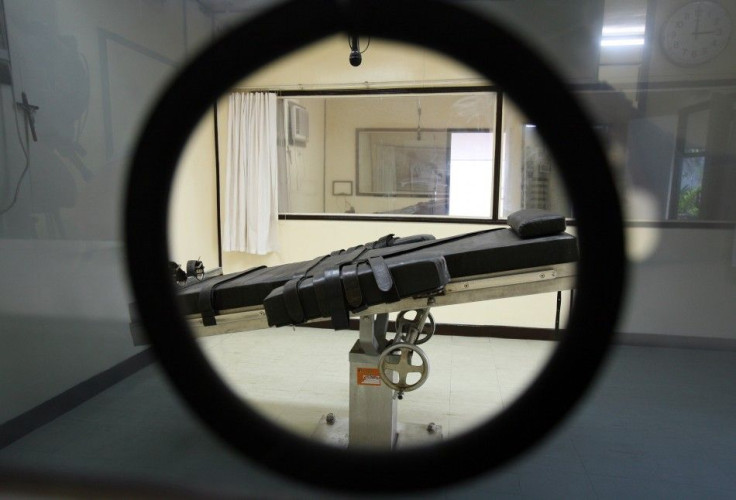U.S. Execution Rate Pales in Comparison to Iran, China

Troy Davis is scheduled to be executed at 7 p.m. Wednesday night in Georgia, and barring a last minute motion by Governor Nathan Deal, the convicted killer of an off-duty police officer will be the 34th person executed in the U.S. this year.
Meanwhile, the Supreme Court halted the execution of Cleve Foster in Texas to review a final appeal. The reprieve was the third time that Foster's execution has been delayed.
As of Jan. 1, there were 3,251 total prisoners on death row in the U.S., but the number of executions per year has been declining over the past decade. After reaching a 30-year high in 1999, with 98 executions, the number has fallen gradually and last year a total of 46 people were put to death in the U.S.
However, despite the decline, the U.S. still executes the fourth most people of any country in the world. That puts America right in front of Pakistan, where 365 criminals were sentenced to death in 2010 regardless of a moratorium on executions.
On average, the U.S. executes more people than Saudi Arabia, where on Tuesday a Sudanese national charged with sorcery was beheaded.
Sorcery has no legal definition in the Saudi Kingdom, but Abdul Hamid bin Hussain bin Moustafa al-Fakki was arrested after a man paid him to cast a spell that would cause a divorce, according to Amnesty International.
That he should have been executed without having committed anything that would appear to constitute a crime is yet another deeply upsetting example of why the Saudi Arabian government should immediately cease executions and take steps to abolish the death penalty, Amnesty said in a statement.
Saudi Arabia has now executed 44 people this year, a figure that puts it in line to meet the U.S. figures of the mid-2000s.
The three countries that execute the most people per year are China, Iran and Iraq, respectively. At least 1,100 people have been sentenced to death in Iraq since 2007, and 120 people were executed in 2009. The number of 2010 and 2011 executions is unknown.
Iran has held almost 100 executions in September alone, most, but not all of which, have been reported by the government. There have been about 400 total executions so far in 2011 in Iran, according to Amnesty, including the “retribution” sentences given to convicted murderers.
Iran is also one of the few places to still sentence teenagers to death. On Wednesday, 17-year-old Alireza Molla-Soltani was publicly hanged for stabbing Ruhollah Dadashi, a famous athlete known as Iran's Strongest Man.
“The execution of a 17-year-old is deeply shocking, particularly when carried out in public, which brutalizes all those involved, including those who witness it,” stated Hassiba Hadj Sahraoui, Amnesty International’s Deputy Director for the Middle East and North Africa.
“Executing juvenile offenders – whatever their age at the time of execution - is strictly forbidden under international treaties that Iran has signed up to. It is high time for the Iranian authorities to take their international obligations seriously and immediately stop executing teenagers, she added.
The execution process is much speedier in Iran than in the U.S., where death row inmates sit for years before being killed. Alireza Molla-Soltani was sentenced to death on Aug. 20, denied appeal on Sept. 11, then hanged on Sept. 21.
China is by far the world's leader in executions by number (although they execute less per capita than Iran) and last year China is thought to have executed more people than the rest of the world combined.
Except in high-profile murder and corruption cases, almost all of China's executions are kept secret, but Amnesty estimates that thousands are killed each year.
© Copyright IBTimes 2024. All rights reserved.





















